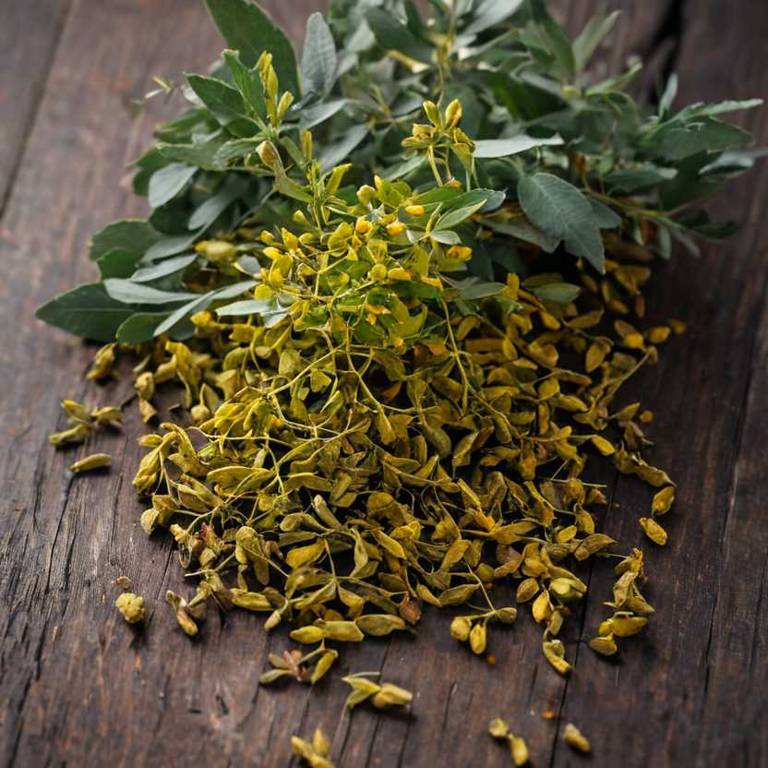Oregon Grape (Berberis aquifolium)
Oregon Grape (Berberis aquifolium) is a member of the Berberidaceae family, native to North America, Pacific Northwest, and United States. Traditionally, its leaves, bark, and roots have been used for decoctions, infusions, and poultices.
This herb is particularly valued for its anti-inflammatory, astringent, and bitter actions, and has a long history of use in native american herbal medicine, european herbal medicine, and mediterranean herbal traditions.

Quick Facts / Key Information
| Common Name | Oregon Grape |
|---|---|
| Scientific Name | Berberis aquifolium |
| Plant Family | Berberidaceae |
| Genus | Berberis |
| Species | aquifolium |
| Native Range | North America, Pacific Northwest, United States |
| Plant Parts Used | Leaves, Bark, Roots |
| Primary Medicinal Actions | Anti-Inflammatory, Astringent, Bitter |
| Primary Traditional Systems | Native American Herbal Medicine, European Herbal Medicine, Mediterranean Herbal Traditions |
| Historical Preparation Methods | Decoction, Infusion, Poultice |
Botanical Identity
- Scientific Name
- Berberis aquifolium
- Common Name
- Oregon Grape
- Synonyms / Alternative Names
- Barberry, Evergreen Barberry, Himalayan Barberry
- Plant Family
- Berberidaceae
- Genus
- Berberis
Botanical Description
- Growth Habit
- Perennial herbaceous plant.
- Height
- It typically grows to a height of 1 to 3 meters.
- Leaves
- Lateral leaflets are needle-like with dark green upper surfaces and lighter green lower surfaces, featuring prominent stomatal bands along the midribs.
- Flowers
- Inflorescences consist of clusters of small yellow flowers with five sepals and five petals, arranged in racemes, displaying actinomorphic symmetry, and featuring prominent orange stamens and a superior ovary.
- Stems
- Erect, woody, branched, with opposite, persistent, spiny leaves and yellow flowers.
Traditional Uses / Historical Use
Traditional Systems
- Native American Herbal Medicine
- European Herbal Medicine
- Mediterranean Herbal Traditions
Historical Preparation Methods
- Decoction
- Infusion
- Poultice
- Tincture
Medicinal Actions
- Anti-inflammatory
- In herbal texts, considered a calming anti-inflammatory, in tissue-soothing contexts.
- Astringent
- Traditionally described as a gentle astringent, for skin-related applications.
- Bitter
- In herbal literature, noted as a cooling bitter, in taste-driven classifications.
- Diuretic
- Historically regarded as a mild diuretic, for elimination-focused applications.
Active Compounds
- Alkaloid
- A class of nitrogen-containing compounds produced by many plant species.
- Flavonoid
- Naturally occurring polyphenols that contribute to pigmentation and structural chemistry.
- Tannin
- Plant-derived compounds known for their ability to bind proteins.
- Phenolic Acid
- A group of plant-derived compounds frequently identified in herbal material.
Modern Research Overview
Scientific literature concerning this plant spans multiple areas, including phytochemistry and laboratory research. Detailed analysis of published studies is not included at this time and will be added as part of future editorial expansion.
Safety & Contraindications
- General Precautions
- Caution is advised in certain contexts based on traditional use and available information.
- Contraindications
- Contraindications related to this herb have been noted in traditional use and available sources.
- Allergies
- Allergic reactions associated with this herb have not been well documented.
- Drug Interactions
- Available information regarding interactions with pharmaceutical drugs is limited.
- Toxicity
- The use of this herb has been linked to reported toxic effects.
- Pregnancy & Breastfeeding
- Available information regarding use during pregnancy or breastfeeding is limited.
Preparation & Usage Methods
- Infusion
- Dried or fresh plant parts are infused in hot water and consumed as a beverage.
- Decoction
- Plant parts are gently boiled in water to release soluble constituents.
- Poultice
- Plant parts are crushed or moistened and placed directly on the body.
- Tincture
- This method preserves plant compounds using an alcohol-based solution.
- Powder
- Dried plant material is ground into a fine powder.
Growing, Harvesting & Storage
Growing / Cultivation
- Soil
- Prefers loamy soil with well-drained conditions. Typically grows best in organically rich soils.
- Sunlight
- Thrives in partial shade. Tolerates full sun to partial shade.
- Watering
- Prefers well-balanced moisture levels. Tolerates variable moisture levels.
Medical Disclaimer
The information provided on this page is for educational and informational purposes only. It is not intended to diagnose, treat, cure, or prevent any medical condition. Always consult a qualified healthcare professional before using any herb for medicinal purposes.